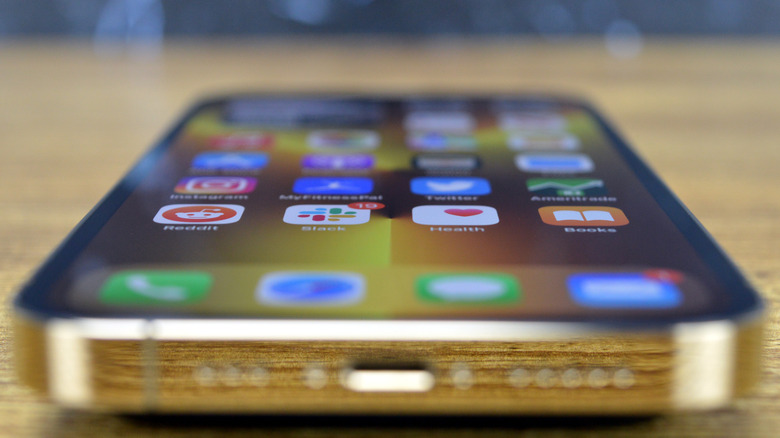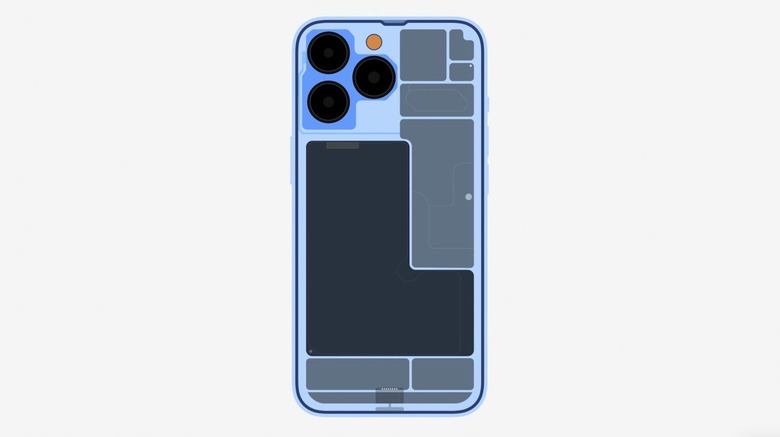iPhone 14 Might Get Battery Life Boost Thanks To New 5G Chip
As with any new generation, the iPhone 14 will deliver several improvements over its predecessor. Battery life is one of the upgrades that iPhone 14 buyers can expect from this year's iPhone generation, as it's the kind of improvement we always seek from newer models.
A new report indicates that Apple inked a new deal for 5G radio frequency (RF) chips that should benefit the iPhone 14's battery life twofold. First of all, the chip is more efficient. Secondly, it frees up additional space that Apple can use to bump up the battery capacity.
iPhone 13 battery life is already amazing
The iPhone 13 models are slightly thicker than their predecessors — enough for Apple to increase battery capacity across the board. Tests have shown the iPhone 13 Pro Max is the undisputed king when it comes to battery life. No other Android flagship can offer better performance. Not even the brand new Galaxy S22 Ultra can outlast the iPhone 13 Pro Max.
Last year's tests also showed that the smaller iPhone 13 mini outlasts the iPhone 12, proving that Apple took battery life improvements seriously.
As a result, we'd expect the iPhone 14 models to offer at least the same battery life capabilities as their predecessor. But the iPhone 14 will suffer a significant change. Apple will eliminate the mini size from its lineup, replacing it with a non-Pro version of the Max — the iPhone 14 Max. The direct consequence is that the four iPhone 14 models will come in two screen sizes: 6.1-inch and 6.7-inch. And the Max models should deliver terrific battery life.
Silicon advancements allowed vendors to improve the efficiency of their latest smartphones while bringing more sophisticated features to smartphones. The iPhone 13 models support 5G connectivity, with the Pro versions also featuring 120Hz displays. These are two power-hungry technologies, yet the iPhone 13 battery life is amazing.
The new iPhone 14 5G RF chip
A new report from Economic Daily News claims that Apple granted TSMC another big contract. The Taiwanese chipmaker will manufacture 5G RF chips for the iPhone 14, taking over from Samsung.
The new TSMC chips will be built on its 6nm process, making them more efficient than their predecessors. Moreover, the chips themselves will be physically smaller than the previous versions. That frees up additional space that Apple can use to increase battery life.
Having a few extra square millimeters of space might sound trivial. Yet the iPhone 13 models are just 0.25 mm thicker than the iPhone 12 versions. And all iPhone 13 models feature larger battery packs than their predecessors.
Aside from battery life improvements, the iPhone 14's 5G RF chip will also deliver support for Wi-Fi 6E. Previous rumors said that the 2022 iPhones might support the new wireless standard, which brings access to the 6GHz band in addition to the Wi-Fi 6 features. Other rumors claimed that Apple will rely on Wi-Fi 6E to beam data between devices like the iPhone and the unreleased mixed reality glasses.
All of that is just speculation at this point. But if the iPhone 14 will indeed get smaller, more efficient, TSMC-made 5G RF chips that can improve battery life, you have one more reason to be excited about this year's iPhones.

